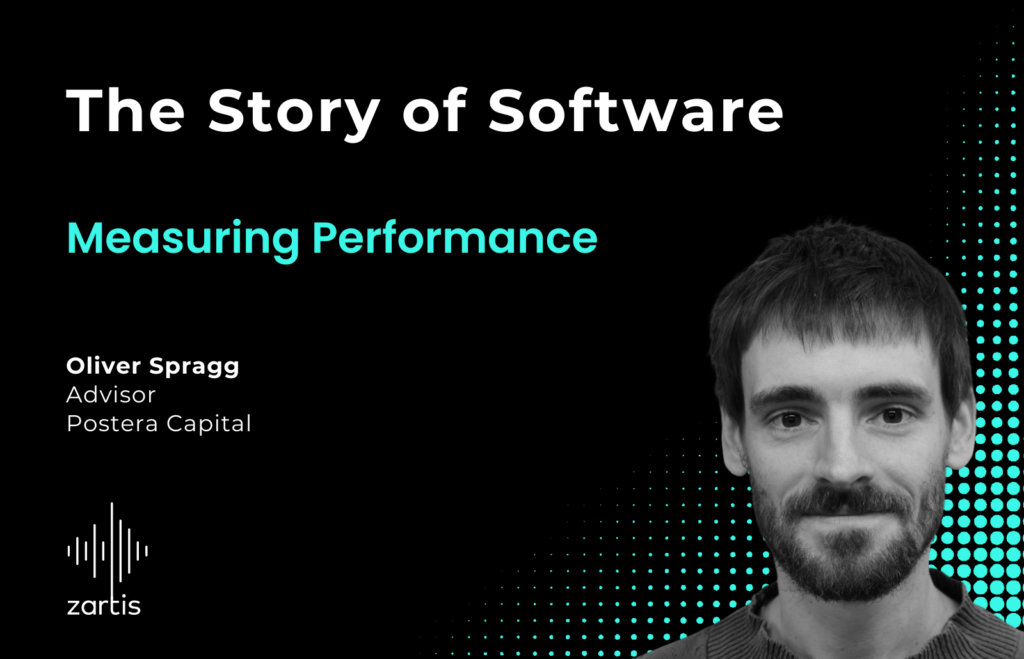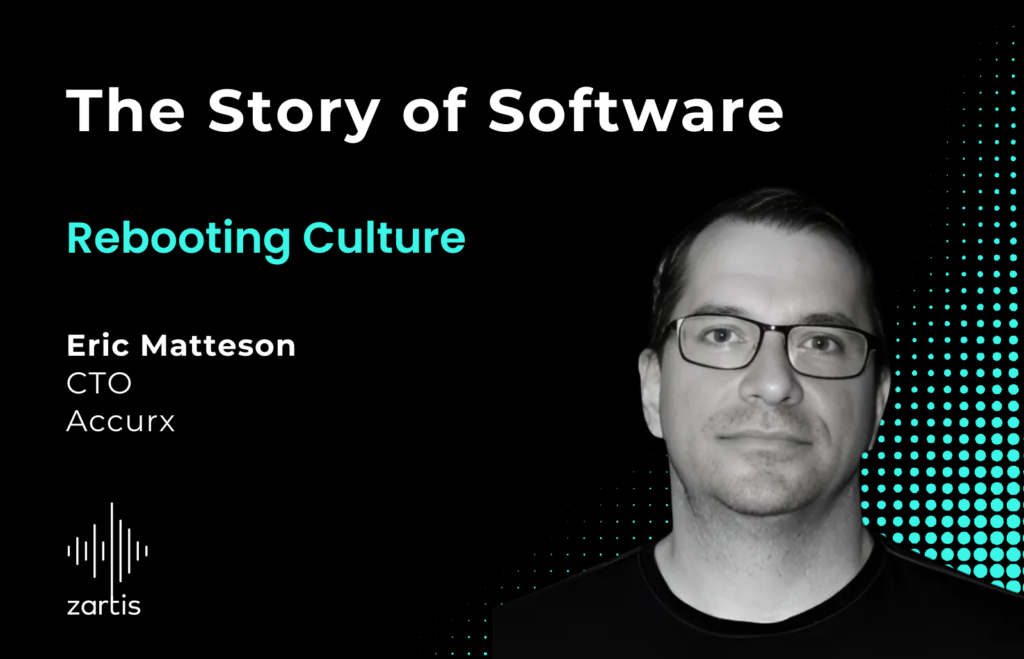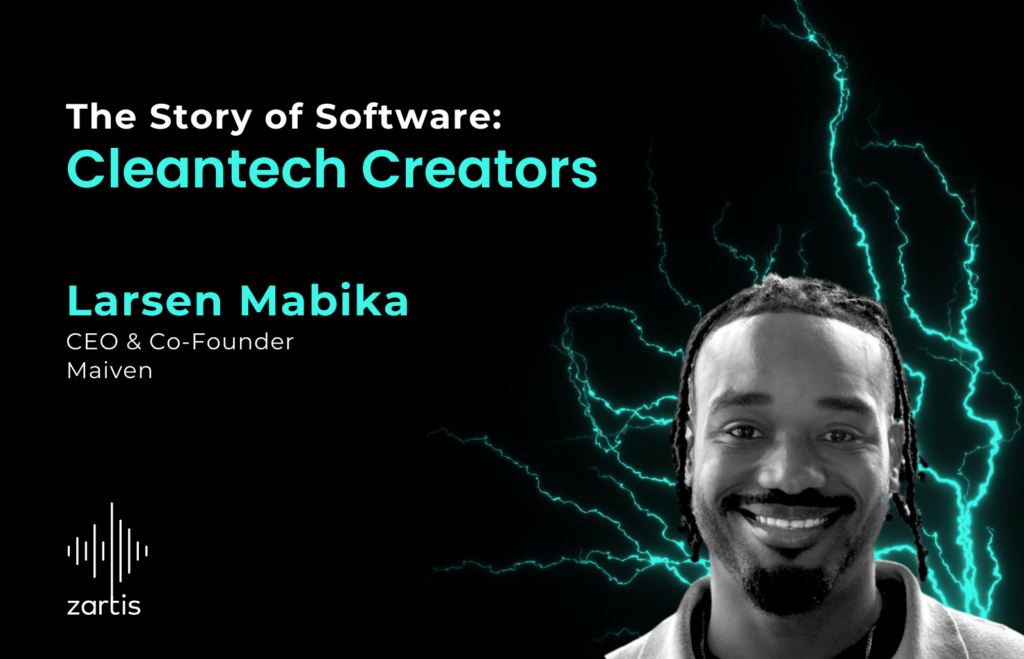Padraig Coffey, CEO at Zartis and podcast host, is joined by Stuart Cochran, CTO of BridgeU, to discuss change management in technology companies, particularly within software engineering teams.
Change Management in Tech Teams
The Guest – Stuart Cochran, CTO at BridgeU
Stuart is currently the CTO of BridgeU, a company declared as one of the most innovative Edtech companies in Europe by assisting schools to focus on simplifying the complex journey students of today face as they take the next step in their careers. Bridge U was acquired by the leading US edtech company, Kaplan, in 2020.
Stuart has over 20 years experience leading software development teams and projects in various industries including telecommunications, media and most recently, EdTech.
The Challenges and Opportunities of Managing Change
Stuart shares his experience on company-wide change as an employee, and as manager of tech teams across different industries.
Some of the topics covered include:
- The key aspects of change to always consider.
- Key technological enablers in managing change.
- Important people management strategies.
- The common challenges and pitfalls.
- How COVID-19 impacted the way we perceive or approach major change.
Episode Highlight
Episode Transcript (abridged version):
[…]
Stuart, could you tell us a little bit about what are the major categories of change that you witnessed over your career?
For sure. I guess the way I think about it is, there’s some change happening because the business is making decisions and pushing itself forward, or occasionally dealing with issues, dealing with problems and challenges. So, there will be journey-driven things that can be: how do we scale up, how do we go faster, how do we improve quality, how do we build new policy services, how do we enter new markets etc. And some of the changes are caused by external events – they are a little bit harder to predict when they’re going to happen and because of that, it can be much more difficult to manage as you don’t necessarily have the same length of time to talk to the team about what might happen and how it can affect them. Those things are the obvious things like we’ve taken a whole new round of funding and that means we have new investors, and often a different level of expectations or course. Maybe, we bought a company, or we’ve been acquired by a company.
How did COVID impact BridgeU and what was the experience for you guiding a technology division within a company during this time?
We were incredibly lucky in some ways that we had made a decision before COVID, that we wanted to have a remote team that was distributed, and that we found a way to hire and onboard and work with people no matter where they were. But that was in my part of the business, it wasn’t true across the whole business so that was a challenge, but generally the company was able to make that transition easily.
From a customer’s perspective, it was definitely more challenging. We work mostly with international secondary schools and those schools were shut. There was a challenge for our customers, they certainly weren’t able to deliver the teaching, or the guidance that they normally do face to face in the classroom and they had to find new ways of doing that. In many ways, COVID was good for our business, and I can say that knowing full well that it wasn’t good for every business. Colleagues in technology businesses in hospitality or travel had it very difficult. We were very lucky in the sense that schools suddenly were teaching online, and they needed new platforms, new tools and new ways to work with their students, and their families. So, we saw some very positive things for us.
The transition was easy for us to make as a company, but I wouldn’t say it hasn’t come without its challenges like all change does. I think that one of the things that we’ve had to keep our eyes very open about is to know what extra stressors and strains/challenges are our people seeing that are not obvious. You have to dig a bit deeper to find out what they are and then help people through that.
What would you say are the key aspects of change that you need to look out for?
It’s definitely true that you need to over-communicate when changes are happening. I think one of the things I’ve learned is that change is almost always a constant in technology businesses. Those changes can be internally driven or by external events,and you may not always have the ability to predict very accurately, so you have to also build resilience. I do think communication and resilience really go hand in hand. I think that helping a team become resilient to change is all about talking to them, and all about giving them context, giving them a better understanding of the sorts of things that could happen without necessarily having any certainty that they will happen. Just talking about it, you know, this is the trajectory of wellness as a pathway for our business and some of that can be technical. Hopefully, you will grow in business. That means you’ll be facing challenges like scaling. While expanding to different industries, you might certainly have a very different entry regime. You have to deal with all sorts of other changes as you grow a business internationally, like different languages and cultures and ways of working. All of those can have an impact technically as well as all for the people in the business.
The other thing that I found is that it’s especially hard for people to realize that they have to talk about problems or where things don’t go well but I think it’s vital. The way that you build resilience within a team is: you explain that the path forward is not always a straight line. It’s not always up and to the right with growth. There can be times where you’re flatlining, there can be times where you need to really figure out how to improve. I think having the honesty to talk about it whether it’s a personal thing to say, you know I make mistakes and I acknowledge when that happens, or whether it’s talking about a business and saying “a business will make some mistakes also”. It’s important to talk about those things too. When they’re talking to a team, managers feel they have to always be positive, they always have to sort of sell the future and paint the picture that it will be fine. There is a degree where you need to motivate people, and you do need to paint that future and inspire people about what could happen, but I also think it’s important to be honest and transparent.
I’d love to ask you, from a technological point of view, what you see as enablers in managing change?
I think this is like a simple answer, which is a true answer, but it may be too simple. It is about small units of work and short cycle times – reducing the risk effectively, reducing the risk if we work with a risky move. There has to be the option to back something out, and it’s much easier to do it where the change was small. I think, personally, a bigger issue about how technology and tech teams can deal with change, is about the trade offs that are inherent in change. There’s a set of options, we have a set of choices that we need to make and therefore, we need to be really clear about what trade offs we make. Those trade-offs again can be like to go fast, or would you want it to be very stable. Do you want it to be highly scalable, or do you want to get something out of it quickly. There are all sorts of technological trade-offs to make, but there are also commercial or business trade-offs. So, making sure the teams understand that we want to empower them to make those trade-offs themselves is crucial. Where teams feel they’re being told what to do, and they feel that some of those decisions and trade-offs have been decided by other people, I think the danger there is not getting the best out of your team. Because the change will happen whether you like it or not, it’s about empowering the team to be able to react to it themselves or even anticipate it themselves. To do that, you genuinely have to give them the accountability, give them the responsibility and make them feel that they are in control.
From a people management point of view, what are the other things you can do to bring people with you on that change journey?
Great question. A couple of things come to mind. Too often, especially with new managers and technology teams, sometimes the mistake people make is, they assume that technology teams only care about technology, and everything has to be translated into the language of the engineer. My experience is actually quite the opposite. I found that technology teams are just as interested in the commercial aspects of the business. What are sales colleagues’ findings and what’s easy to sell and what’s hard or what’s resonating well with customers and users and what isn’t. What feedback we get or even what the competitors are doing. So, I think one thing is that giving context to the team is important, and across the business, not just talking about the technology aspect but actually talking about the challenges that the other teams are facing as well as the successes that happen of course.
The other thing I found is based on a learning from a piece of work done many years ago; now I’m not sure when it was published but it’s called The Ladder of Inference, where the author talks about how as humans we make decisions. He talks about the fact that there are facts, there are things in the world that we can all observe, but then as humans, which ones we perceive, and how we interpret those facts actually impacts the decisions we make. And, what I found often with technology teams is that, when they are thinking about change and anticipating or reacting to it, the way in which they interpret what’s happening, will be quite different. It will be quite easy for me to say to them Well, I think you’re wrong in your approach but that’s the wrong approach. The approach to take is to ask them first, why do they think that will happen, what is it that they see about the change that is happening, that makes them feel x. Often when you have that conversation, you uncover something that is very obvious to them which was hidden for you.
Many examples of big change that happens is when companies are acquired, and the challenge with companies being acquired is, often it’s by a confidential process. It’s not something you can talk about for months and you often have to wait until the ink is dry on the deal before you can talk to the business. And sometimes people’s reaction to your company being acquired is not positive. They actually get very worried that this is now going to lead to a bad outcome. Often managers, especially if they’ve been involved in the process and kind of feel in some way responsible for it, feel under pressure to defend or justify it or talk it up. My experience is that it’s actually worth taking the time to talk to somebody about the wider context and when it comes to individuals, recognizing the way in which they will interpret the world is maybe different to you.
[…]
You can find The Story of Software podcast on:
Apple Podcasts, Spotify, Stitcher, Deezer, & any other podcast platform of your choice.
We hope you enjoy listening to this tech podcast and feel free to share any feedback with us: podcast@zartis.com







